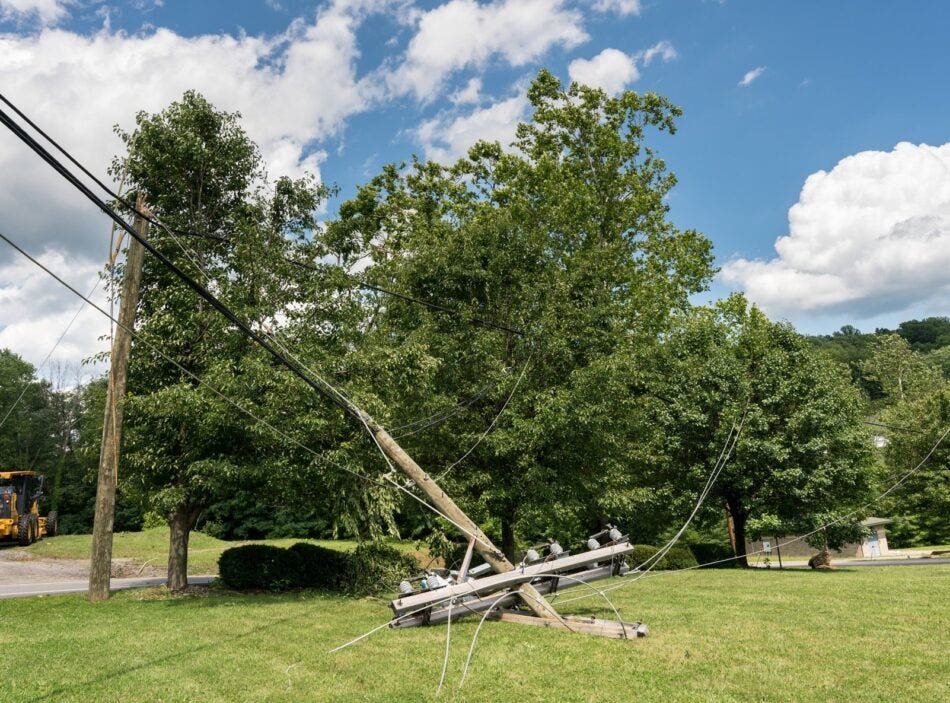The power can go out for a number of reasons: a bad storm, a line got knocked down, scheduled maintenance and other such events. While many of us may experience some electronic and internet withdrawal, first and foremost you should think about the steps you need to take in order to keep yourself your family and your home safe. Below are a few tips to help you protect your home during power outages!
1. Secure your home
Outages generally mean that security systems are not going to be working. If the outage is due to a storm there may also be wind and precipitation that can potentially cause damage. Ensure your doors and windows (and those of any outbuildings) are secured (closed and locked). Secure outside furniture by bringing it inside or tying it down. Bring in or protect anything else that could be at risk for damage where you can.
2. Protect your electronics
Surge protectors are a great investment when it comes to protecting large electronics that can be damaged during storms and by the power going out. If you have some forewarning you may want to unplug electronics such as your television and computer. You should also be regularly backing up important information or data like photos just in case your computer is damaged.
3. Protect your home from water
You should install a sump pump with a battery or generator backup or some alternative that will operate even if your power goes out. Again if the cause of the outage is a storm there may be significant rain. The last thing you want is for the electric sump pump to quit on you and your basement to begin filling with water. Ensuring that you have a pump that will work when the power is out is a major benefit.
Installing a sewer backup valve is also a good idea in case of flooding – and it doesn’t require electricity to work!
Make sure you check your home (especially the basement) for water if there’s significant precipitation. If the power’s out, you may need to use flashlights.
4. Have an emergency kit prepared
This kit should include enough supplies for your family (including pets) to survive for a few days without power. You should include:
- Potable, drinkable water, at least 5L a person
- Food (non-perishable)
- A battery or crank radio
- Flashlight
- First aid kit
- Medications
- Blankets or sleeping bags
If you’re at home you’ll likely have enough food but you may not be able to cook anything if the powers out. If you can prepare ahead of time you should fill your bathtub and any you have containers with water as you may not be able to get any if the power is out.
5. Keep your pipes from freezing
If the power outage happens during the winter, you may be worried about your pipes bursting. To prevent this, shut off your water and open all faucets and taps to let them run dry. If you want to keep the water on, you should open all cupboards with pipes and keep taps dripping to prevent water from freezing.
This isn’t necessary for a short outage but if it lasts longer than a day and it is very cold you may want to take this precaution.
Power outages are certainly no fun but being prepared for them can at least alleviate a little bit of the hassle. Simple common sense things can make all the difference in the world save you from having to scramble during such an event and protect your home and belongings.

